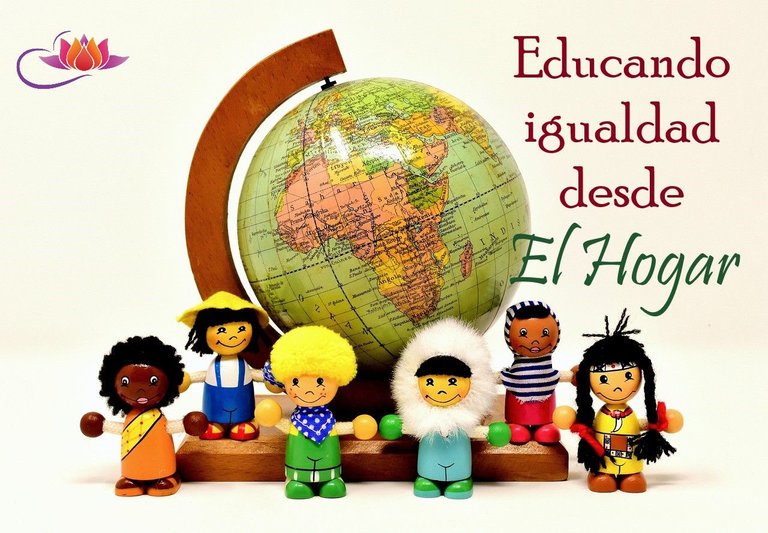

No puede haber bienestar con desigualdad; y sabemos que la desigualdad depende de muchas circunstancias, entre ellas, las políticas y las económicas de un país o región.
Sin embargo, la peor desigualdad es la que está ante nuestros ojos cuando miramos al otro; por lo tanto, el problema es la intolerancia.
La intolerancia está haciendo que nuestra calidad de vida disminuya en muchas partes del mundo, pero también, en la persona que no reconoce que, todos tenemos los mismos derechos, independientemente de nuestras singularidades.
La calidad de vida es terrible para el que señala y para el que recibe la crítica, porque tenemos, siempre, que convivir con gente diferente y nuestras concepciones de normalidad o de lo que es aceptable, pueden prevalecer en la interrelación con los demás.
En la semana del bienestar de la OMS, en los cuidados que necesitamos y los cuidados que queremos, yo expongo: La capacidad de educarnos para ser tolerante.

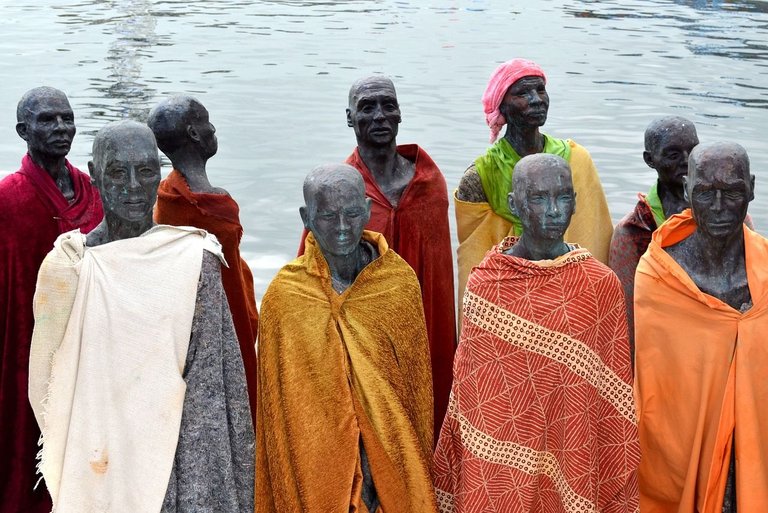
La terrible intolerancia
Parece mentira, pero en mi profesión es tan común observar características de la personalidad que tienden al rechazo a otros.
Personas que creemos muy inteligentes tienen rechazo hacia las diversidades sexuales, que es lo que llamamos intolerancia de género; pero también, personas a quienes les gusta hacer servicio, tienen, de trasfondo inconsciente, una intolerancia racial o cultural no aceptada.
Tampoco puedo dejar de nombrar la intolerancia religiosa y la política o ideológica, ya que son rechazos que están cambiando la vida de la sociedad en múltiples países, con enfrentamientos políticos y religiosos que nos separan y nos diferencian entre nosotros mismos.
Continentes como Europa, viven en una intolerancia racial, un antisemitismo aun a ocultas y una incapacidad de entender al emigrante con todas sus diferencias raciales y culturales.
Eso nos está convirtiendo en una sociedad precaria de valores tan importantes como la solidaridad y la empatía.
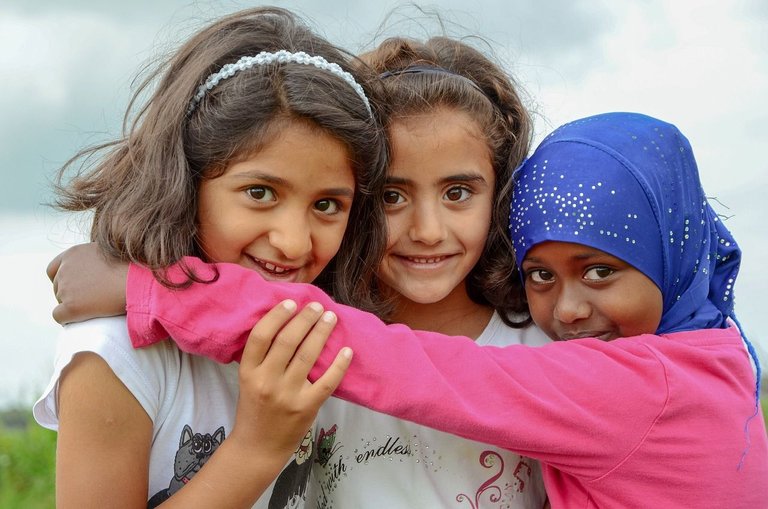
Lo que dice las Naciones Unidas
Las Naciones Unidas ha dejado establecido, en forma muy clara, que las formas de intolerancia están relacionadas y ocurren en forma diaria; y que obstaculizan el progreso de millones de personas en todo el mundo.
No podemos hablar de una semana de bienestar cuando nuestros hijos, nuestros amigos y nuestras comunidades, sufren de intolerancia, cualquiera que esta sea.
La lucha contra el racismo y en pro de los derechos humanos de esta organización, es su piedra angular; por lo que se trabaja para llevar legislaciones en todas partes del mundo y concretar que es un problema real y constante.
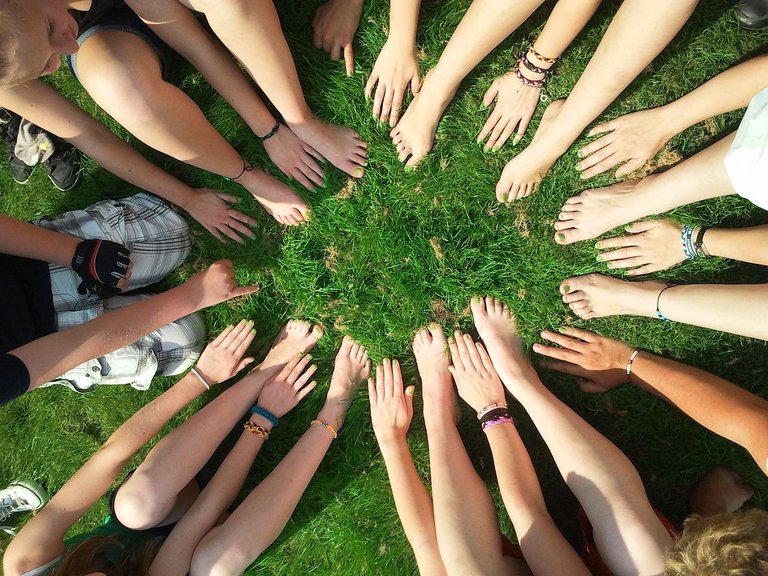
Proponer una respuesta para resolver un problema social
Iniciativa Semana Mundial del Bienestar; se nos propone que desarrollemos temas que nos lleven al cuidado de nuestro bienestar biológico, psicológico o social; y, me encantó esta pregunta:En esta iniciativa de @holos-lotus,
“Si pudieras dar una respuesta o propuesta para resolver un problema social que beneficie a la mayoría proporcionándoles bienestar, ¿cuál sería tu propuesta?”
Mi propuesta, basada en mi experiencia como médico de más de 35 años atendiendo pacientes, es la educación en el hogar en los primeros años de vida.
Por eso, propongo el siguiente plan de inicio:
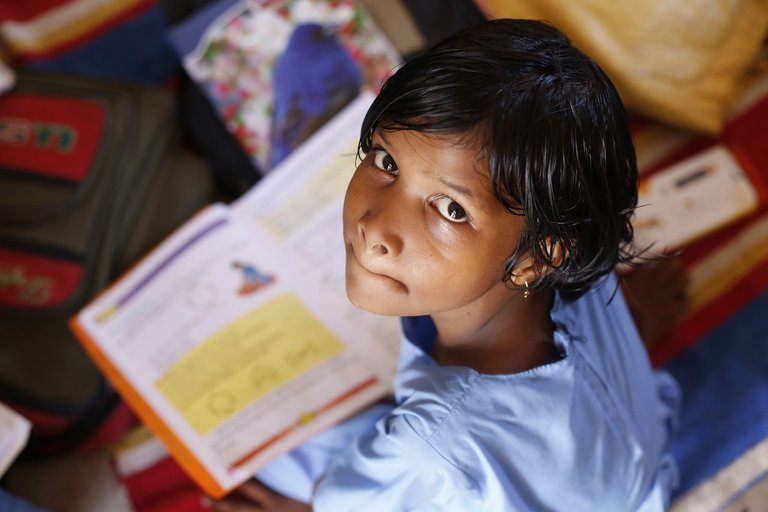
Plan Básico para educar desde el hogar contra la intolerancia:
1.- Edúcate como padre
Ante todo, debes ir creando en ti una perspectiva de vida que te permita ver a todos en su verdadera dimensión, como seres humanos que estamos formados por el mismo ADN.
Que nuestras diferencias obedecen a rasgos originarios que se dieron producto del ambiente.
Si te educas, vas a poder transmitirle a tus hijos la capacidad de que vean a todos como seres humanos con diferencias pero con iguales derechos e igual valor.
2.- Habla con tu pareja
Discutan entre los dos, la forma como ustedes ven las diferencias y unifiquen, para no dar informaciones divergentes.
Como padres, deben generar una negociación que les permita transmitirle a los hijos una explicación de por qué todos somos diferentes y de dónde nacen las diferencias.
No está mal educar a los niños entendiendo que las tipologías sociales obedecen a un porqué, muchas veces físico o biológico, que nada tiene que ver con la capacidad de elegirlas.
3.- El acceso a la información debe tener bases sólidas
Cuando los niños tienen una comunicación seria y frecuente con los padres, pueden recibir información valiosa desde el hogar.
Películas, libros, juegos, pueden ser discutidos en forma amena para que los niños vayan aprendiendo que las diferencias son algo común y corriente en el mundo.
Acepta todas las preguntas de tus hijos y responde con honestidad; y cuando no lo sepas, explícales que podemos buscar la respuesta consultando fuentes apropiadas.
Ellos acceden a la información a una edad muy temprana y deben estar formados para saber lo que van a encontrar.
4.- Promueve la acción contra la intolerancia
En tu hogar, puedes promover interrelaciones sociales en grupos, clubes, colegios donde exista variedad de personas.
Instituciones que sean abiertas a las diferencias, para que ellos se vayan acostumbrando a reconocerlas y a vivenciarlas.
Erradicar la discriminación es muy simple: Solo debemos no discriminar.
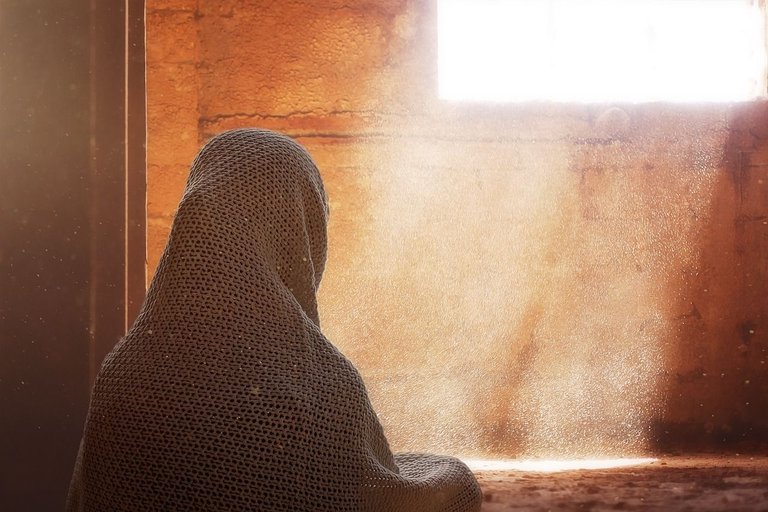
Los cuidados van más allá de lo individual
Estamos insertos en un mundo lleno de gente, con ideas infinitas y, por lo tanto, la variedad no es solo física, cultural, religiosa o ideológicas; sino también, de perspectivas de vida.
A veces, unificarnos es bastante complejo; sin embargo, la humanidad anteriormente ha logrado unificarse en muchos aspectos; y un gran ejemplo son los deportes.
¿Por qué no podemos cuidar nuestro ambiente social, nuestra salud mental, unificando los criterios, enseñando a ver todas las diferencias que existen en los seres humanos como algo completamente normal y aleatorio?
No todos tenemos las características que la industria consumista nos enseña, que son las características ideales.
Y la tranquilidad emocional, el equilibrio mental, se refleja a nivel social, cuando logramos crear un mundo donde todos seamos iguales, donde no señalemos a nadie por diferente.
Esta es mi propuesta para esta iniciativa: Comenzar a regular la educación en nuestras casas.
Les comparto la Declaración sobre la eliminación de todas las formas de intolerancia y discriminación fundadas en la religión o las convicciones de las Naciones Unidas, para que comprendamos más abundamente el tema.
propuesta que nos hace la comunidad.E invito a @mercmarg, a @davidsantafe y a @emileli a participar en esta maravillosa
Porque somos comunidad y porque juntos, podemos hacer un mundo mejor.


Eradicating social intolerance - Yes we can! From The Home -The social care we want-
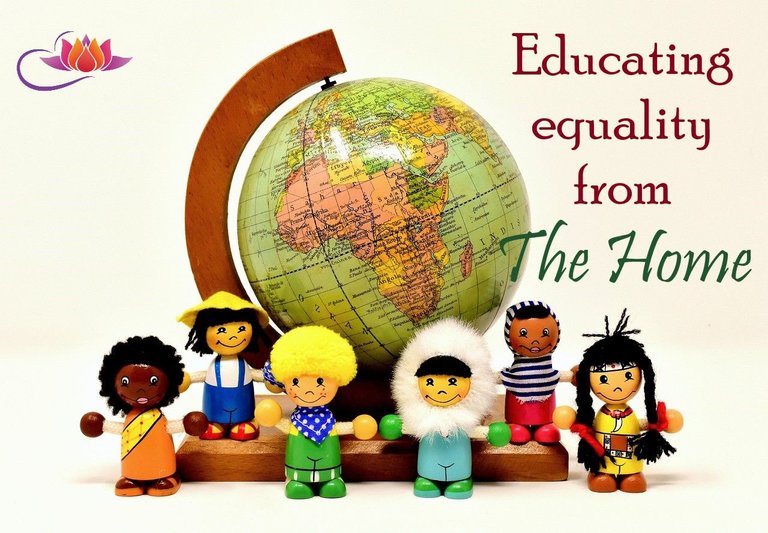

There can be no well-being with inequality; and we know that inequality depends on many circumstances, including the political and economic circumstances of a country or region.
However, the worst inequality is the one that is before our eyes when we look at the other; therefore, the problem is intolerance.
Intolerance is causing our quality of life to diminish in many parts of the world, but also, in the person who does not recognize that, we all have the same rights, regardless of our singularities.
The quality of life is terrible for the one who points out and for the one who receives the criticism, because we always have to coexist with different people and our conceptions of normality or what is acceptable can prevail in the interrelation with others.
In the week of wellbeing of the WHO, in the care we need and the care we want, I expose: The ability to educate ourselves to be tolerant.


The terrible intolerance
It seems unbelievable, but in my profession it is so common to observe personality characteristics that tend to reject others.
People who we believe to be very intelligent have a rejection towards sexual diversities, which is what we call gender intolerance; but also, people who like to do service, have, unconsciously, an unaccepted racial or cultural intolerance.
Nor can I fail to mention religious and political or ideological intolerance, since they are rejections that are changing the life of society in many countries, with political and religious clashes that separate and differentiate us from each other.
Continents such as Europe, live in a racial intolerance, an anti-Semitism even hidden and an inability to understand the immigrant with all his racial and cultural differences.
This is turning us into a precarious society of values as important as solidarity and empathy.

What the United Nations says
The United Nations has established very clearly that forms of intolerance are related and occur on a daily basis, and that they hinder the progress of millions of people around the world.
We cannot talk about a week of well-being when our children, our friends and our communities suffer from intolerance, whatever it may be.
The organization's fight against racism and for human rights is its cornerstone, which is why it works to bring legislation to all parts of the world and make it a real and ongoing problem.

Propose an answer to solve a social problem
World Wellness Week Initiative; we are proposed to develop topics that lead us to take care of our biological, psychological or social wellbeing; and, I loved this question:In this initiative of @holos-lotus,
"If you could give an answer or proposal to solve a social problem that benefits the majority by providing them with well-being, what would your proposal be?"
My proposal, based on my experience as a physician of more than 35 years attending patients, is home education in the first years of life.
Therefore, I propose the following starting plan:

Basic Plan to educate from home against intolerance:
1.- Educate yourself as a parent
First of all, you must create in you a life perspective that allows you to see everyone in their true dimension, as human beings that are formed by the same DNA.
That our differences are due to original traits that came about as a result of the environment.
If you educate yourself, you will be able to transmit to your children the ability to see everyone as human beings with differences but with equal rights and equal value.
2.- Talk to your partner
Discuss between the two of you, the way you see the differences and unify, so as not to give divergent information.
As parents, you should generate a negotiation that allows you to transmit to your children an explanation of why we are all different and where the differences come from.
It is not wrong to educate children understanding that social typologies obey a reason, often physical or biological, which has nothing to do with the ability to choose them.
3.- Access to information must be based on solid foundations
When children have a serious and frequent communication with their parents, they can receive valuable information from home.
Movies, books, games, can be discussed in a pleasant way so that children learn that differences are something common and common in the world.
Accept all of your children's questions and answer honestly; and when you don't know, explain that we can find the answer by consulting appropriate sources.
They access information at a very early age and should be trained to know what they are going to find.
4.- Promote action against intolerance
In your home, you can promote social interaction in groups, clubs, schools where there is a variety of people.
Institutions that are open to differences, so that they get used to recognize and experience them.
Eradicating discrimination is very simple: We just have to not discriminate.

Care goes beyond the individual
We are inserted in a world full of people, with infinite ideas and, therefore, the variety is not only physical, cultural, religious or ideological; but also, of life perspectives.
Sometimes, unifying ourselves is quite complex; however, humanity has previously managed to unify in many aspects; and a great example is sports.
Why can't we take care of our social environment, our mental health, unifying the criteria, teaching to see all the differences that exist in human beings as something completely normal and random?
Not all of us have the characteristics that the consumerist industry teaches us are the ideal characteristics.
And emotional tranquility, mental balance, is reflected at a social level, when we manage to create a world where we are all equal, where we do not point out anyone as different.
This is my proposal for this initiative: To start regulating education in our homes.
I share with you the Declaration on the Elimination of All Forms of Intolerance and Discrimination Based on Religion or Belief of the United Nations, so that we can understand the subject more abundantly.
And I invite @mercmarg, @davidsantafe and @emileli to participate in this wonderful proposal from the community.
Because we are community and because together, we can make a better world.

Emilio Ríos – Venezuela
@emiliorios


- Barras separadoras y logo de English, editadas en Paint, de:
Separator bars and English logo edited in Paint, from:
Pixabay-Bessi
Custom @emiliorios headband with the #Hive logo, made by the excellent creator @mosa71Cintillo personalizado de @emiliorios con el logo de #Hive, realizado por la excelente creadora @mosa71Nuevo logo de Twitter tomado de la plataforma de la red social.
New Twitter logo taken from the social network platform.Dibujo de agradecimiento, tomando el logo de nuestra comunidad y editado en Paint, de:
Thank you drawing, taking our community logo and edited in Paint, by:
Pixabay-TillbrmnnSi lo deseas, puedes seguirnos en:
If you wish, you can follow us at:




Bienvenidas las Delegaciones / Welcome Delegations
Trail de Curación / Curation Trail
Muchas gracias equipo amado de @mundo.autismo
Muchas gracias equipo querido de @mayvileros
@emiliorios Un tema del cuál hay que hablar bastante, hoy en día hay demasiada intolerancia y es nuestro deber como sociedad y seres humanos no hacernos los indiferentes ante situaciones de violencia o rechazo. Gracias por traer este tema y espero poder subir un post hablando sobre esto. Saludos amigo! 😊
Ojalá que escribamos mucho sobre esto, pues, es nnecesario.Es correcto @naath Ahora, imagínate que apenas le eché unos granos de azúcar al café para endulzarlo: ¿Te imaginas cúanta tinta hace falta para hablar de la erradicación de la intolerancia desde el hogar? Lo que me parece la única solución.
Congratulations your publication has been chosen among the best of the day.
KEEP CREATING GOOD CONTENT.
Thanks so much @edu-venezuela team.